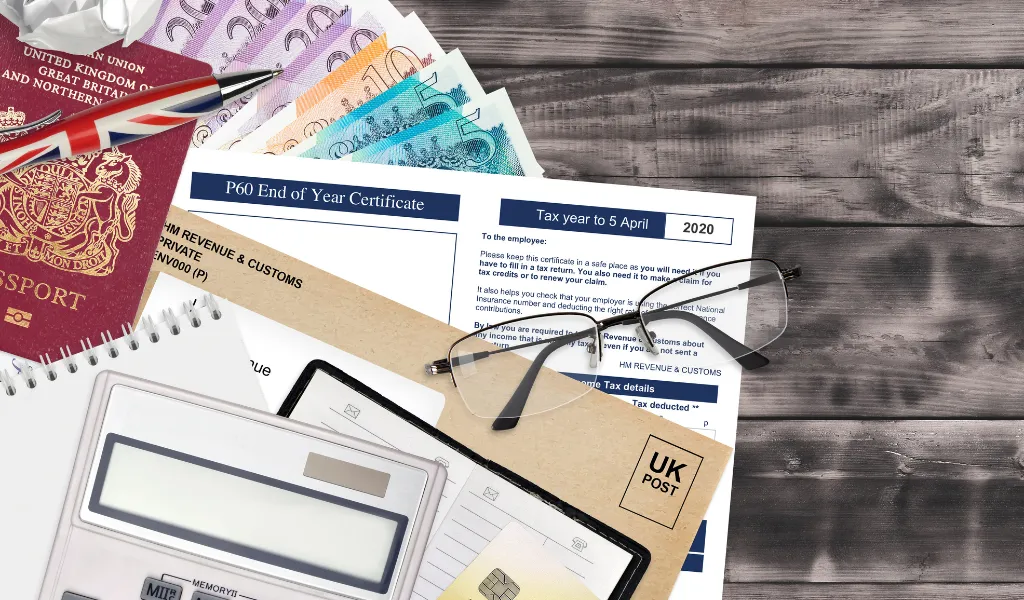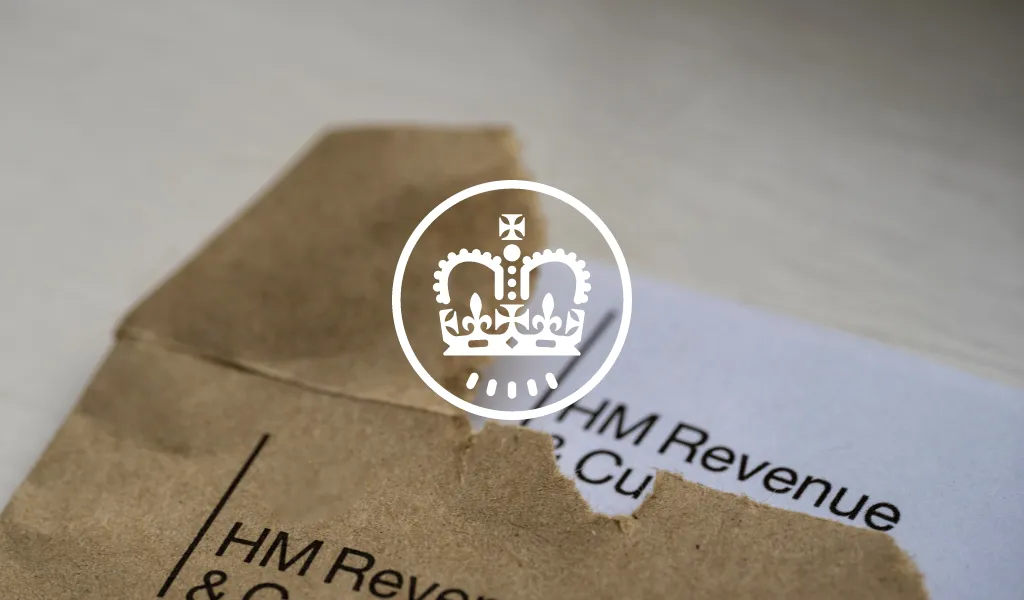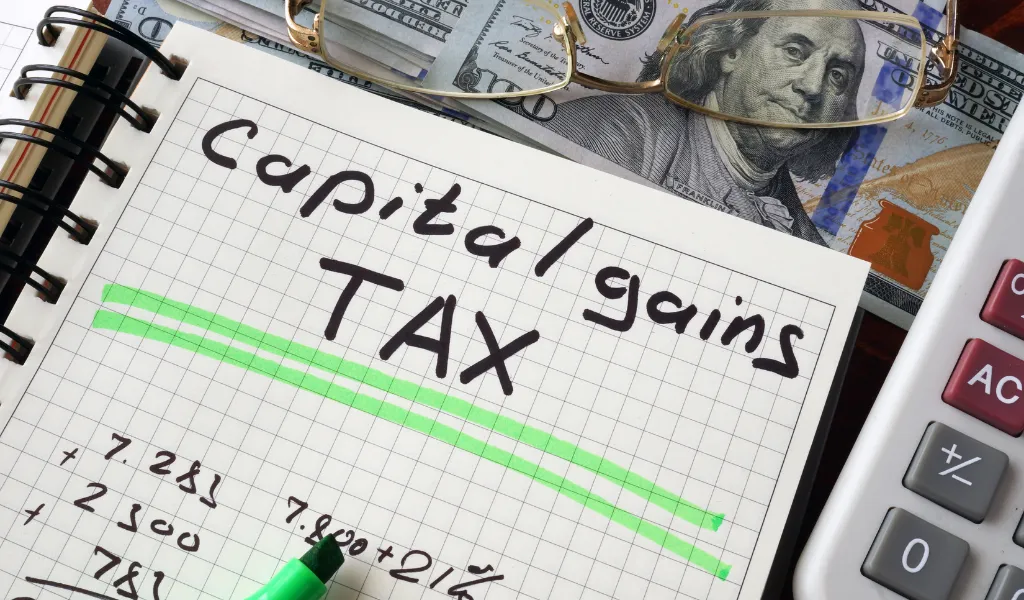It is important to know how much debts you owe to HMRC. They will chase you for repayment of those debts. Those debts can exist because of missed tax credit payments or any outstanding amount you owe. HMRC can even take you to court if you owe them money. Which leads to you owing them even more money. Therefore, you should know how long can HMRC chase a debt.
This guide will cover the legal length of HMRC chasing a debt that you owe and much more. You will also learn what to do in such scenarios and the consequences of not paying off your debt. Indeed, owing money to the HMRC is a serious matter and you should treat it as such.

Can You Beat HMRC Debt Collectors?
Yes, there is a way to get rid of HMRC debt collectors. You can write off at least some of the debt that you owe.
How can you do that? Several debt solutions exist in the UK. You must select the right one to write off some of your unaffordable debt. However, the incorrect one can cost you more and drag out.
How Long Can HMRC Chase You Legally?
After six years, certain debts become statute barred. That is not the case with HMRC. Legally, they can chase you for longer if you owe money to them.
If HMRC contacts you regarding a debt, then what should you do? Well, first, you must start acting immediately. You cannot ignore the debt. It is not going to disappear on its own. If you do so, then it can lead to more problems and complications for you.
How Will You Know If You Owe Money to the HMRC?
If you owe any money to the HMRC, then they will contact you to let you know. They can write to you or perhaps call you. Sometimes they send notify you through text messages. This is dependent upon the contact information they have. HMRC will continue to send you letters if you fail to contact them. Moreover, with time, it is possible they will arrive at your doorstep.
The HMRC does notify you if they are going to come to your house or your workplace. Still, you might miss this notification and then you will receive a surprise at your door. Therefore, it is best to read all the letters that you receive to avoid an unexpected visit. It is important to know the answer to the question of how long can HMRC chase a debt.
How and When do Debt Collectors Contact You?
In case the HMRC cannot reach you, they will pass on your account to debt collectors. This is only for desk-based recovery and not very common. In this scenario, the debt collectors will reach out to you through phone calls and letters. If you want to avoid them, then you must contact HMRC directly.
Can HMRC Take Your Belongings?
HMRC has enforcement powers, even if debt collectors do not. This means that they can come to your house and take your belongings. They will sell your belongings to raise money to pay off the debt you owe them. The amount of money you owe increases because of the process of taking your possessions. This is because they charge you for the expenses of seizing and selling your belongings.
You will get a notice from HMRC regarding their arrival to take your possessions. There is no need to panic, as you still have time to pay off the debt. For that, you must get in touch with them and agree upon a repayment plan. In case you cannot come up with a repayment plan, it is best to learn about bailiffs. Thus, you must know how long can HMRC chase a debt.
What is Direct Recovery by HMRC?
HMRC has many options to recover the debt from those who owe it. One of those options is called Direct Recovery. Through this option, they can take money from your benefits or account directly. It does not matter how long they chased the debt; this option is available. It depends on the type of the debt that you owe. Suppose you owe more than £1000 to the HMRC. Also, your bank account has enough money to pay off the debt. In this scenario, HMRC can use Direct Recovery. The HMRC will make sure that you have enough money to live on when they use this option. Hence, you do not have to stress about not having enough money in your account to live off.
How Long Can HMRC Chase a Debt?
If you are thinking about how long HMRC chases debt for tax credits, then you should know that it varies. A standard time limit is four years. However, certain investigations can take as long as twenty years later. Hence, you should know that there is no exact limit despite the standard four-year period. Therefore, it is possible for HMRC to chase a debt for many years if you do not repay it.
Recovery of Tax Debt
Claimants with outstanding tax debts that date back to decades also contact HMRC to make claims. It is indeed not uncommon for outstanding debts to exist for a decade or more.
In England and Wales, the Limitation Act 1980 applies to tax credit debts. However, there is some uncertainty here as it does not apply to tax debts. The confirmation for this lies in the HMRC DM manual. This Act states that debt recovery must start taking place within six years of the debt being due. In most cases, HMRC cannot take county court action. Therefore, the debt transfers to DWP for collection. It is not collected from ongoing benefits, which are through universal credit or separately. Undoubtedly, the six-year rule is complex. You should reach out to debt experts before going down this road. Please note that the rules differ in Northern Ireland and Scotland. It is essential to know how long can HMRC chase a debt.
Is it Possible for Your Debt to Become Statute Barred?
Old debts cannot take you to court for certain types of creditors under the Limitations Act of 1980. What type of debts fall under this? Well, it includes credit cards, loans, and repayment arrears. Even though this can include tax credits, HMRC debt is unlikely to become statute barred. However, this does not mean it is impossible.
What If You Have Outstanding Credit Debt with an Ex-Spouse or Partner?
Legally, HMRC can only collect a tax credit overpayment debt for a couple in full once. They to do so from either the claimant or their spouse/partner. HMRC will send letters to both in the scenario where this is because of the breakdown of a household. They will also do whatever they can to trace a former partner whose address is not up to date.
The amount each one must pay depends on the circumstances of the claimant and their ex-partner. HMRC can ask them to pay a different amount or perhaps ask one of them to pay the full amount. That is, if they believe that a discrepancy should exist in the amounts due. Another option is to agree upon the amounts and notify HMRC. They will not pay that amount individually, but rather jointly. Therefore, it is important to know how long can HMRC chase a debt.

Can HMRC Force You to Sell Your Jointly Owned Property?
It is possible for the owners of a jointly owned property to sell it to pay off the debts of one of them. Under the correct procedures by HMRC, they can force both the owners to sell their property.
There are two methods to do so. First is by placing a charge on the jointly owned property. Then, they apply for a warrant of sale. Please note that this procedure is not possible in Scotland. The second option is to make the debtor declare bankruptcy.
If HMRC chooses the second procedure, then all your property transfers to the trustee in bankruptcy. The trustee can apply to sell the property to pay off the debts and their fees.
The other owner is entitled to their share of equity from the property and their rights. However, at the end of the day, they will sell the house. That is, unless if the property in question has little or no equity. Sometimes, they might wait till it does have equity.
For How Long Does DWP Chase Debt?
The usual time frame for the Department of Work and Pensions (DWP) to collect debts is six years. If the DWP brings a county court claim against you, you have the right to file a defence. This is in case of an overpayment of benefits which you believe were an occurrence of six years prior. You should reach out for legal advice if you plan to do this. Thus, you should know the answer to the question of how long can HMRC chase a debt.
Since going to court is not necessary, a direct earnings attachment is enough to get back overpaid benefits. This is true at any time, even if after writing off the debts. Suppose you do not pay back the debt you owe to HMRC. Then, it can pass on to the Department of Work and Pensions. Which, as you know, can take six years for them to chase. Please note that the DWP may use enforcement action to get the repayment of the debt.
If you don’t pay HMRC the debt you owe, it might get passed on to the DWP. The usual length of time the DWP can chase a debt is six years. The DWP can use enforcement action to ensure the debt is repaid. The repayment comes from your wages or benefits directly.
How do they make sure that is recovered? Well, a change in your tax code will indicate it. The DWP can also send bailiffs to your house to recover your possessions. These possessions will raise the funds to recover the debt in case of nonpayment. You must know how long can HMRC chase a debt.
Paying Back the Debt You Owe to HMRC
Now that you know how long HMRC chases a debt, you are most likely thinking of repaying them as soon as possible. There is no need to worry. HMRC is willing to discuss an affordable repayment plan with you. Also, you should reach out to a debt advisor. They will help you figure out your financial budget. Moreover, you can research about debt solutions. For example, bankruptcy or an IVA.
Can HMRC Chase You in a Foreign Country?
The short answer is yes, HMRC can come after you even if you are abroad. This is because the UK has made agreements with other countries’ governments to collect debt that someone owes there. Thus, you must know how long can HMRC chase a debt.
Through these mutual legal assistance treaties (MLATs), HMRC can work with foreign governments. This allows them to collect debts that any UK resident who has left the country owes. Additionally, debt collection agencies are also another way for HMRC to recover debts from abroad. The rules for debt collection vary from country to country. Therefore, it is best to seek expert advice if you owe debt and live outside of the UK.
Is It Necessary to Check for Other Debt Collectors?
In the UK, it is evident that the amount of personal debt is increasing. The prediction of the Office for Budget Responsibility states that UK household debt will reach £2.354 billion in 2025. It is no wonder that a lot of people owe more than one debt in the UK. In case there is a possibility that you have other debts, then you must ensure they are under control. Therefore, you must know the answer to the question of how long can HMRC chase a debt.
The first thing you must do is to check your bank statements and email. Also, you need to check your post to see if there is any correspondence from debt collectors.
Here are a few that you should keep an eye out for:
- Lowell Financial
- PRA Group
- Cabot Financial
How to Contact HMRC
| Phone: | 0300 200 3300 +44 135 535 9022 (For foreigners) |
| Official app: | https://www.gov.uk/guidance/download-the-hmrc-app |
| Official website: | https://www.gov.uk/government/organisations/hm-revenue-customs |
Conclusion:
To conclude, if you owe money to the HMRC, then they will chase the debt for many years. In fact, it can take up to twenty years. It is best to pay off your debts as soon as possible. Otherwise, there are many consequences to bear. Which can result in you owing even more money. Therefore, if HMRC contacts you regarding a debt you owe them, you should act accordingly and timely.








